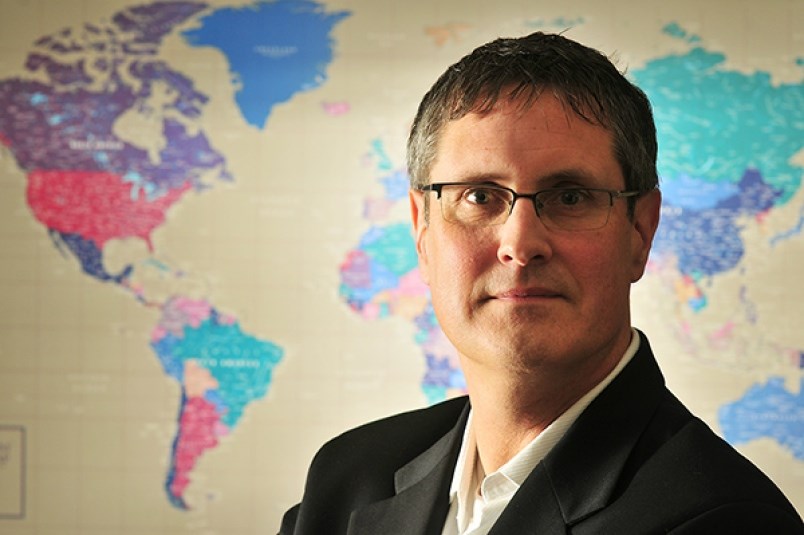Coquitlam residents have been doing an outstanding job welcoming Syrian refugees into the community this year but much work needs to be done to fully integrate the newcomers, according to Immigrant Services Society of BC's director of settlement services.
In recent months, approximately 7% of Syrian government-assisted refugees (GARs) arriving in B.C. have landed in Coquitlam, according to ISS, totalling more than 90 people in several family units since January, and are residents have opened their arms to the newcomers, said Chris Friesen.
Everything from bikes to Halloween costumes have been donated to families, business owners have hired newcomers and local groups, such as the Tri-Cities Welcome Wagon and another calling itself the Tri-Cities Friends of Refugees, have fundraised for household items.
Meanwhile, School District 43 has provided programs to integrate students into classrooms, establishing a welcome centre at Montgomery middle school.
Friesen said he has been impressed with the way the community has reached out to the newcomers, singling out Coquitlam Mayor Richard Stewart for special praise for rallying the community.
"His leadership on council and in the community — really going the extra mile in welcoming and to ensure Syrians in Coquitlam had the best possible start and welcome — these types of random acts of kindness and offers of help have continued unabated the past year," Friesen said.
In fact, how B.C. has responded to the refugee crisis has been a good news story throughout the year, said Friesen, noting that the province welcomed 2,100 GARs, with B.C. residents privately sponsoring an additional 424 Syrian refugees and another 326 individuals arriving via the Blended Visa Office-Referred program.
"It has a been an extraordinary year," he said. "The Syrian resettlement movement is the largest resettlement movement in Canadian history and by far the largest in British Columbia."
There is other good news, too.
In a survey of heads of households, including Coquitlam residents, 81% are accessing English classes, 17% are employed full- or part-time and 82% said their children are doing well in school.
Still, there are stresses. Friesen said families are worried about their loved ones oversees and aren't sure how they are going to make ends meet as they they transition from federal government financial support to provincial income assistance.
The majority, 66%, need to use food banks and the average waiting list for English languages classes is four months, making it difficult for many refugees to find work.
Some are concerned that when they get on welfare, they will no longer be able to earn up to 50% of their monthly income support without it being clawed back, unlike the federal program, and they will lose their federally-funded transportation allowance.
Difficulty getting childcare, finding affordable long-term housing and accessing mental health support are all issues that will need to be addressed, Friesen said. He expressed optimism, however, because more British Columbians are now aware of poverty issues because of their involvement with Syrian refugees. He noted the refugees are grateful for the help they have received from Canadians.
"I think it has increased the awareness of poverty-related issues generally because I think many more British Columbians understand and question how you can live on such limited income assistance. And because we have Syrians now in over 50 communities of B.C., the ripple effect of the friendships of the interfaith dialogues, the discussion around dinner tables, I think have really created a more compassionate communities."



